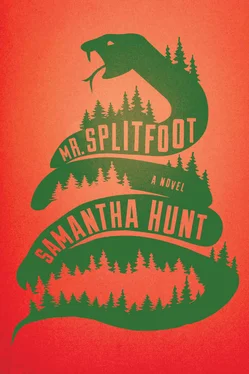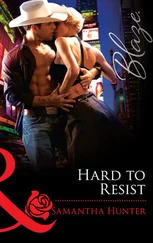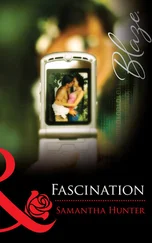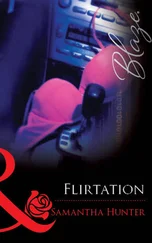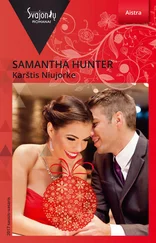She doesn’t understand the question entirely. All she’d done was look at him for a moment. Is it good or bad to be her boyfriend? Does that carry some sort of immunity? Or does boyfriend = head beaten with a crowbar? More likely faggot = crowbar with these boys. Even more likely, nobody’s safe because they don’t even understand what it is that’s making them angry. Chunks of muddy slush cling to the flap behind the tire, hanging on for life.
“Generally.” Mr. Bell draws them off her. “Male homosexuals don’t go in for mothers.” Raw meat to maggots, they turn toward him.
“What’d you say?” asks a slow one.
“Oh, dear.” Mr. Bell sizes him up, hand on chin. “You, presumably, own one of the trucks?”
“Why?”
“Strapping young lads such as your friends here only socialize with the hideously obese who can afford fancy cars.”
“Cocksucker.” The guy begins his waddle toward Mr. Bell’s neck, arms raised zombie style.
“Yes, well, Fatso. The truth do hurt.” Mr. Bell takes a seat on the hood of his car, arresting Fatso’s advance with indifference. Mr. Bell dusts a few snowflakes off his knees.
“I think you three are in trouble now,” says the black-haired boy, closing in on Nat, who suddenly looks tiny in the big world. Ruth churns with nausea, a wave of blind sickness to see Nat made unstrong and scared.
“Is that right?” Mr. Bell asks.
Ruth tries to count. Five of them. Again. No six.
“Yay, boy. We’re the Destructo-Crew.” The black-haired boy’s voice makes a high screech, striving for the amped-up insanity of a metal band but sounding more like a happy dinosaur on a children’s cartoon. “And we like to blow shit up!”
Threats met with silence sound absurd. “Like what?” Mr. Bell finally asks. “Balloons? Bubble gum?” Again he draws the bullies off Nat and Ruth. “I don’t imagine we’re meeting here by coincidence?” He shifts gears, begins his attack. “So I wonder why we’ve been selected for this honor. Is it because one of your lot…” He looks around. “I’m guessing you.” He points to the dark hair. “Longs to pound your pale, pitiful worm against the dewed and virtuous flesh of my bride? Yet due to some malformation in your person, you lack the refinement to pursue her eye in the more traditionally charming ways — flowers, phone calls, candlelit dinners? You follow instead the caveman paradigm, the old club and hair drag?” The boys are stunned dumb. “Grunt once for yes, twice for no.”
Brown slush drops from their mud flaps down to the road. Mr. Bell stands, dusts off more snow.
“You’re one of those religious weirdoes from Tahawus. Ether?” The statement comes from a boy who has not yet fully climbed out of his cab. “Yeah. He’s one of them,” the boy says to his friends. “I can tell by his pants.”
Mr. Bell puffs up his chest and regards the pants he has on. “Hmm.” He rubs the fibers of the fabric between his fingers, puzzled.
“Is she?”
“Am I what?”
“A weirdo.”
Ruth considers this.
Mr. Bell pinches his chin. His silence is a bit frightening, brewing something. The boys wake from a fantasy of manhood.
Ruth re-asks them their question. “Am I a weirdo?” She’s ignored.
Mr. Bell does not blink but ever so slightly nods assent. Yes.
“I knew it,” Fatso says. “Let’s go.” His cronies do not disagree.
“Sorry about that,” one utters.
Mr. Bell nods.
The boys beat a retreat, executing two rapid three-point turns, radios blaring. The black-haired boy strikes a hand gesture most certainly intended to be devil horns but which is, in actuality, the American Sign Language manual expression of the phrase “I love you.”
Nat, Ruth, and Mr. Bell return to the car, shaking snowflakes from their shoulders and crowns.
“Morons.” Mr. Bell tries to wash away the incident with one word. He keeps the speedometer steady at twenty-five miles per hour, breathing in practiced labor, calmly, firmly, but it is not so easy for Nat and Ruth to carry on. While they are accustomed to measured doses of violence, their force fields are weak.
“What were they talking about?”
Mr. Bell takes a right onto a smaller road through pine trees and then a left onto an even smaller road. LOWER WORKS says one sign. MT. MARCY says another. SLEEPING GIANT. Ruth can’t read all the signs before they pass — something about private property, something about the DEC, something about a missing boy. Their rear end fishtails slightly. The road is not cleared.
“I’m sure I have no idea.” Mr. Bell looks once again at his completely average pants.
The snow continues to fall. The deeper they move into the forest, Ruth feels calmer. Mr. Bell is a weapon so secret, he doesn’t even know the secret.
The road goes higher still, and after a mile or two it straightens, allowing a view that tightens every nerve in Ruth. “Mr. Bell.” She leans forward.
“This is the stretch I spoke of.”
“We have to cross that?”
“I’m afraid so.”
Nat leans forward as well, and through the front windshield the three of them study what’s ahead. The view is sickening. The road narrows to an extended, one-lane wooden bridge with railings constructed of rough branches no thicker than a woman’s arms. The bridge curves in a crescent over a chasm whose bottom is deep enough to be unknowable, a slice carved through the mountain’s stone since before time began.
“Are you sure?”
Rather than respond, Mr. Bell starts out across the pass in a crawl. All three hold their breath as if the slightest change in air flow might send the vehicle plummeting over the edge.
Safe on the far side, they travel a few miles in grateful silence. Finally, Mr. Bell speaks. “It’s really more dangerous on the descent. One wants to slow to allow for the curve, but braking on a frozen one-lane bridge is the worst idea a driver could ever have.”
Through the trees and snow, there’s an enormous structure built of stone beside the road. It’s dark and towering, nothing like a house, closer to an ancient jungle temple, built by people who believe in human sacrifice. She hopes they won’t be staying there.
“Blast furnace.”
This triggers no response from Nat or Ruth.
“There was a mine here a long time ago.” Ruth cannot see the top third of the furnace from inside the car. They pass it by. “Some of the pits are down there.” Mr. Bell points through the woods. “They’re filled with water now. Deepest lakes in the Adirondacks. During the mine’s high years, almost a thousand people lived up here. Tahawus.”
“What?”
“Someone told me it means Cloud-Splitter, though I can’t finger the language. Something native perhaps. It was a company town with all the attendant alienations and snug circumstances that suggests. There was one YMCA. People fished or hunted. People mined until the eighties, when it became cheaper to bring ore in from South America.”
“You have a summer home here?”
“No.”
“This is where you grew up?”
“The mine was closed by the time I was born.”
The car slows again. “Then what were you doing?”
“Here.” Mr. Bell turns down an unplowed drive. The wheels spin and, less than a few yards down the path, the vehicle lurches into a shallow ditch. He spins the tires a few times before announcing, “All right. We are firmly stuck.” As though he’d intended it. “We can hoof it in from here.”
Each carries a box of food, and as long as they are careful, they can walk gently on top of the snow like cats trying to not break through the crusted surface. When they are less careful, the surface breaks. Mr. Bell goes under first, plunging in up to his mid-thigh, dipping into a world that is cold, bright, and without oxygen. He extracts himself on all fours, and they set off again, stepping lightly, mastering the slow art of walking on top of snow.
Читать дальше
